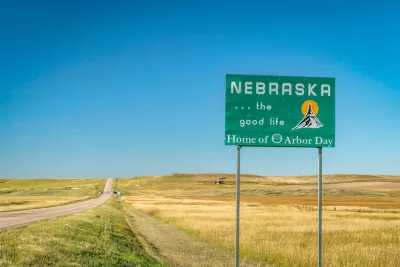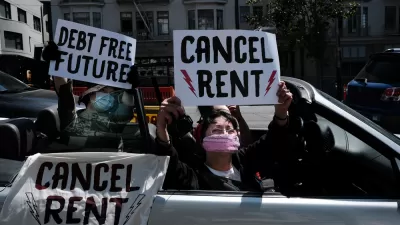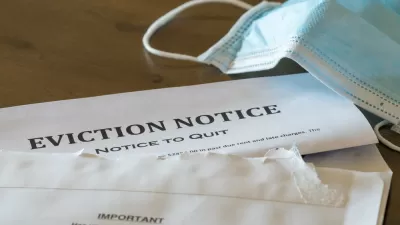Rural states like Nebraska, Montana, and West Virginia have refused federal funding to aid vulnerable renters during the economic shocks of the pandemic, and that money is now headed to other parts of the country.

“Governor Pete Ricketts, a Republican, has declined to spend $120 million in federal housing assistance funds, claiming the aid risks turning Nebraska into ‘a welfare state,’” according to an article in the Boston Globe by Pranavar Baskar [potential paywall].
Nebraska isn’t the only state to pass on federal funding in recent months—“hundreds of millions of that money is going unused,” according to Baskar, despite the $46 billion Emergency Rental Assistance Program's track record of success. The funding has helped stave off an estimated 1.3 million evictions, according to housing experts cited in the article. A similar redistribution of the program's funding was threatened in January 2022, as states like Georgia, Arizona, Wisconsin, and Louisiana were slow to spend their share, according to a New York Times article published at the time.
Despite the obvious need for housing assistance in rural parts of the country, the Biden administration is now responding to three states' refusal to spend their share of the program's funding by redirecting the funding to more populous parts of the country.
“In March, the Treasury reclaimed $377 million in rental aid, including $11 million from Nebraska, $45.3 million from Montana, and more than $39 million from West Virginia. North Dakota returned nearly half its funds. The federal government then sent that money to New York, California, and New Jersey — states that clamored for more help to weather a severe housing crises,” according to the article.
This isn’t the first time in history that Republican leadership at the state level has refused the largesse of economic stimulus spending. Then-Florida Governor Rick Scott (R) infamously rejected federal funding for high-speed rail during the Obama administration in 2011. That money was eventually redirected to California.
FULL STORY: Red states send back millions in federal housing aid, putting rural renters at risk

Maui's Vacation Rental Debate Turns Ugly
Verbal attacks, misinformation campaigns and fistfights plague a high-stakes debate to convert thousands of vacation rentals into long-term housing.

Planetizen Federal Action Tracker
A weekly monitor of how Trump’s orders and actions are impacting planners and planning in America.

In Urban Planning, AI Prompting Could be the New Design Thinking
Creativity has long been key to great urban design. What if we see AI as our new creative partner?

Florida Seniors Face Rising Homelessness Risk
High housing costs are pushing more seniors, many of them on a fixed income, into homelessness.

Massachusetts Budget Helps Close MBTA Budget Gap
The budget signed by Gov. Maura Healey includes $470 million in MBTA funding for the next fiscal year.

Milwaukee Launches Vision Zero Plan
Seven years after the city signed its Complete Streets Policy, the city is doubling down on its efforts to eliminate traffic deaths.
Urban Design for Planners 1: Software Tools
This six-course series explores essential urban design concepts using open source software and equips planners with the tools they need to participate fully in the urban design process.
Planning for Universal Design
Learn the tools for implementing Universal Design in planning regulations.
Gallatin County Department of Planning & Community Development
Heyer Gruel & Associates PA
JM Goldson LLC
City of Camden Redevelopment Agency
City of Astoria
Transportation Research & Education Center (TREC) at Portland State University
Jefferson Parish Government
Camden Redevelopment Agency
City of Claremont





























